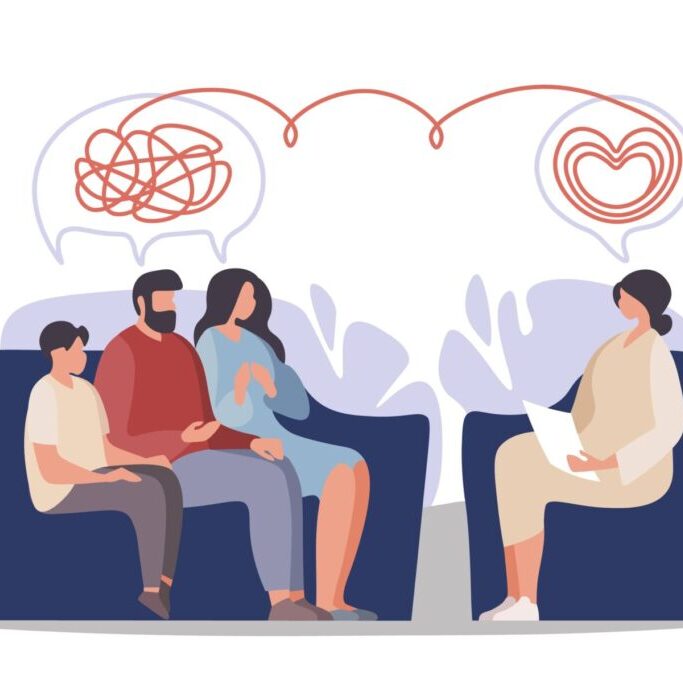The Intricate Dance of Social Anxiety & Approval Addiction: Why We Care So Much About What Others Think

In the whirlwind of social anxiety, we often find ourselves consumed by the thoughts and opinions of others. As humans, we are innately social animals, hardwired to seek connection and understanding. Caring about what others think has deep roots in our evolutionary history, functioning as a vital survival skill to ensure cohesion within our social groups. However, in the modern world, we face a delicate balance between the need for social acceptance and the danger of caring too much about the opinions of others.
But some of us care too much what others think. Understanding the biological, psychological, and social factors can help empower you to release yourself from concerns about others’ opinions.
Caring about others’ opinions can be both adaptive and maladaptive, leading to unhealthy patterns of behavior, low self-esteem, and social anxiety when taken to extremes. In some instances, breaking free from the cycle of constant worry about what others think can be nearly impossible alone, but therapy for anxiety can empower you to live a more fulfilling and authentic life.
Why do you care what others think about you?
Your concern about the thoughts of those around you is not rooted in social media, past experiences with bullies, or your upbringing (although these factors can undoubtedly amplify it).
An evolutionary perspective can help clarify why negative opinions from others can be so troubling. Evolutionary psychology examines the observable occurrence of genetic mutation and its long-term effects across generations. When an organism possesses a genetic mutation that enhances its ability to reproduce, this mutation has the potential to spread throughout the population over time.
Our concern for others’ opinions can be traced back to the dense forests of the Eocene Epoch (around 50 million years ago), where our ancient primate ancestors relied on group cohesion to ward off predators, share resources, and maintain warmth.
Those who failed to fit in or were perceived as threats were ostracized, left vulnerable to a myriad of ancient predators or faced starvation.
Another evolutionary mechanism at play here is sexual selection. Primates that exhibited greater charisma formed stronger bonds, and held higher social status were more likely to attract a mate. Following a few romantic encounters, their offspring inherited this genetic predisposition for charm, which was then passed on to subsequent generations, repeating the cycle. When these processes are multiplied across thousands of generations over 50 million years, the result is you!
So, when we say that caring about others’ opinions is human nature, we truly mean it. It is entirely natural – akin to trees, birds, and bees – to be concerned with how others perceive us.
When does a natural concern about others’ opinions become unhealthy or social anxiety?
If you find yourself constantly altering your identity to please others or if you’re persistently preoccupied with pleasing them, you might be giving their opinions too much importance. While socializing was crucial for survival in the primordial world, it has evolved into a more recreational activity in modern times. Consequently, forging deep social bonds should no longer require significant personal sacrifices.
Paying attention to others’ opinions is essential for functioning in society, but if it results in considerable distress or forces you to change your most cherished values, it might be time to consult a therapist for anxiety.
Instances, where this concern becomes severe, are known as approval addiction, a combination of addiction and social anxiety. “Approval addiction” is a term used to describe the intense and often harmful desire to gain the acceptance and validation of others. This compulsive need for approval can manifest in various ways, from seeking constant reassurance to completely altering one’s identity in order to fit into specific social circles.
In the pursuit of acceptance, individuals with approval addiction may experience excessive stress, anxiety, and even depression as they constantly worry about meeting others’ expectations. This constant self-monitoring can lead to a loss of authenticity and a diminished sense of self-worth, as one’s true identity becomes obscured by the need to please others. In these cases, the quest for approval becomes not only self-destructive but also counterproductive, as it often results in the rejection and isolation the individual is trying to avoid.
What can I do to reduce how much I care what others think?
- Celebrate you: Focus on your strengths, accomplishments, and personal values. Acknowledge your achievements and embrace self-improvement in areas where you feel less confident.
- Check objectivity: Are you engaged in mind reading or possibly exaggerating what others think? It’s common to make assumptions that aren’t actually a true picture of reality.
- Set boundaries: Establish clear boundaries with others to protect your mental and emotional well-being. Learn to say “no” when necessary, and prioritize your needs and desires without feeling guilty. Understanding that you have the right to your own opinions and choices can help you care less about others’ judgments and increase your self-esteem.
- Consider closeness: People closer to us should have a greater influence on our lives. That’s normal and healthy. The next time you are feeling social anxiety, consider if the opinion you are worried about belongs to someone influential in your life or on the periphery.
- Surround yourself with supportive people: Seek out friends and acquaintances who are positive, understanding, and supportive of your choices and goals. Surrounding yourself with people who encourage your growth and authenticity can reduce the impact of negative opinions from others.
- Know who you are and what you stand for: Understand your values, beliefs, and goals, and remain true to them. A strong sense of self will make you less susceptible to the influence of others’ opinions. Consider the question, “If I really wanted to change this person’s opinion of me, would it be worth the cost?”
- Practice mindfulness and self-compassion: Engage in mindfulness practices such as meditation, yoga, or journaling to become more aware of your thoughts and feelings. Learn to treat yourself with kindness and understanding, recognizing that everyone makes mistakes and that it’s okay not to please everyone. By cultivating self-compassion, you can reduce the weight you place on others’ opinions and focus on your own well-being.
When these strategies come up short, therapy for anxiety can help. Therapy for anxiety can be an invaluable tool in helping individuals overcome the crippling effects of social anxiety, low self-esteem, and approval addiction and develop a healthier relationship with the opinions of others. By working with a qualified therapist, you can gain insight into the root causes of their excessive concern with others’ opinions, often stemming from past experiences or deep-seated insecurities.
Through various therapeutic techniques, you can learn to foster self-acceptance, establish healthy boundaries, and build resilience against the pressure to conform to societal norms. As a result, therapy can empower you to cultivate a more balanced outlook on their relationships and interactions, enabling you to navigate social situations with greater confidence and authenticity. By prioritizing self-acceptance and personal growth, you can redefine your self-worth, ultimately freeing yourself from the shackles of approval addiction and the constant need for external validation.
Reach out to us and schedule an anxiety therapist today!
This blog is made for informational and educational purposes only. It is not medical advice.
The information in this blog is not intended to (1) replace a one-on-one relationship with a qualified licensed health care provider, (2) create or establish a provider-patient relationship, or (3) create a duty for us to follow up with you.



